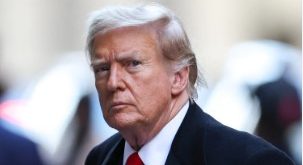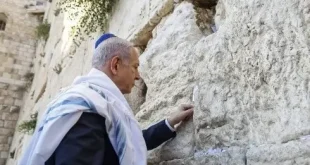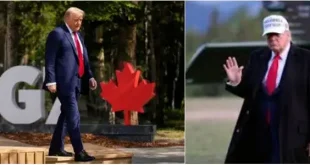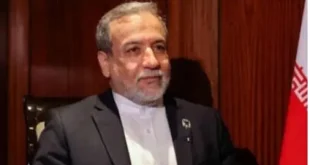Web Desk: In a dramatic shift from his past hardline stance, U.S. President Donald Trump has reached out to Iran’s Supreme Leader Ayatollah Ali Khamenei, urging negotiations over Iran’s nuclear program. In a letter, Trump warned that failure to engage in talks could lead to military action.
Trump’s Direct Message to Khamenei
Speaking in an interview aired on Fox News on Friday, Trump confirmed that he had written to Khamenei, stressing that diplomacy would be in Iran’s best interest.
“I’ve written them a letter, saying I hope you’re going to negotiate because if we have to go in militarily, it’s going to be a terrible thing for them,” Trump stated. “You can’t let them have a nuclear weapon.”
However, Iran’s response has been cold. Foreign Minister Abbas Araghchi told AFP that Tehran would not engage in direct negotiations as long as the U.S. continues its “maximum pressure” policy. Meanwhile, Iran’s mission to the United Nations denied receiving any such letter.
Iran’s Resistance and Rising Tensions
Iran has remained firm in its nuclear ambitions, rejecting U.S. threats. Araghchi, speaking at an Organization of Islamic Cooperation meeting in Jeddah, warned that Iran’s nuclear technology “cannot be destroyed through military operations.”
“This is a technology that we have achieved, and the technology is in the brains and cannot be bombed,” Araghchi declared, signaling Iran’s defiance against military threats.
Iran’s Supreme Leader Khamenei, the ultimate authority in Tehran, has long been skeptical of U.S. negotiations, citing the failure of the 2015 Joint Comprehensive Plan of Action (JCPOA) as proof of Washington’s unreliability. The nuclear deal, brokered under former U.S. President Barack Obama, collapsed after Trump withdrew from it in 2018, reimposing crippling sanctions.
Trump’s Policy Shift and Potential Fallout
Trump’s renewed push for diplomacy marks a departure from his first-term strategy, where he took a confrontational approach toward Iran. His administration sidelined many of the officials behind his original Iran policy, instead signaling interest in reducing tensions.
Reports suggest that billionaire businessman and close Trump ally Elon Musk met with Iran’s ambassador to the United Nations after the election, conveying Trump’s preference for “calm and diplomacy.”
However, Trump’s latest outreach risks a potential fallout with Israel, which has been aggressively targeting Iranian military infrastructure. Israel has already carried out airstrikes within Iran and has been engaged in conflicts with Tehran-backed militant groups like Hamas and Hezbollah.
Iran at a Crossroads Amid Regional Upheaval
Iran finds itself in one of its most precarious positions since the 1979 Islamic Revolution. The collapse of its key regional ally, Syrian President Bashar al-Assad, in December, coupled with Israeli strikes on Iranian positions, has left Tehran increasingly vulnerable.
Despite repeated denials, Iran is accused of advancing its nuclear capabilities. Last month, the head of the UN’s atomic watchdog, Rafael Grossi, revealed that Iran was enriching uranium to 60%—“almost weapons-grade”—raising alarms about its nuclear intentions.
What’s Next?
As Trump pushes for diplomatic engagement while simultaneously threatening military action, the question remains: will Iran bend to pressure, or is the region heading toward a new crisis? With growing tensions between Washington, Tehran, and Tel Aviv, the coming months could prove decisive in shaping the future of Middle Eastern geopolitics.




